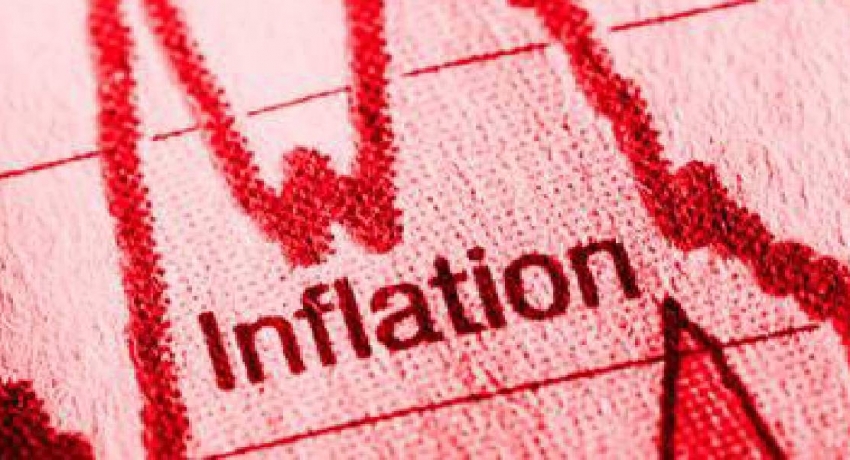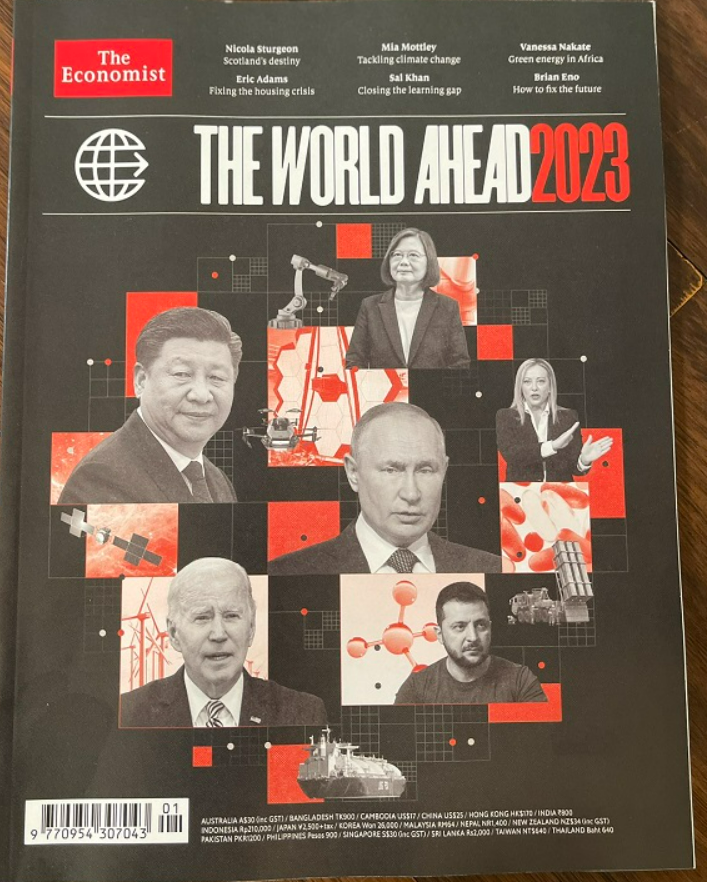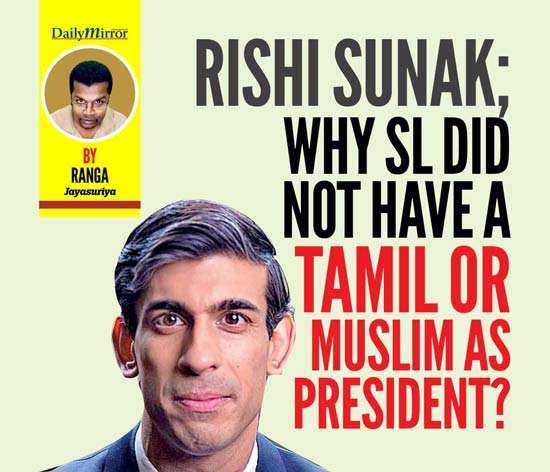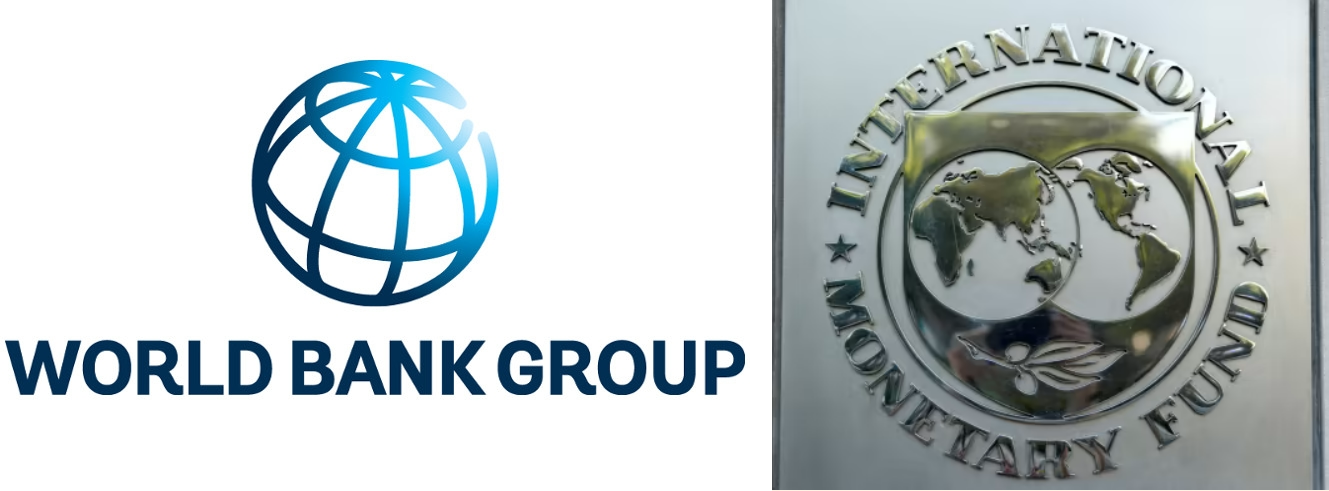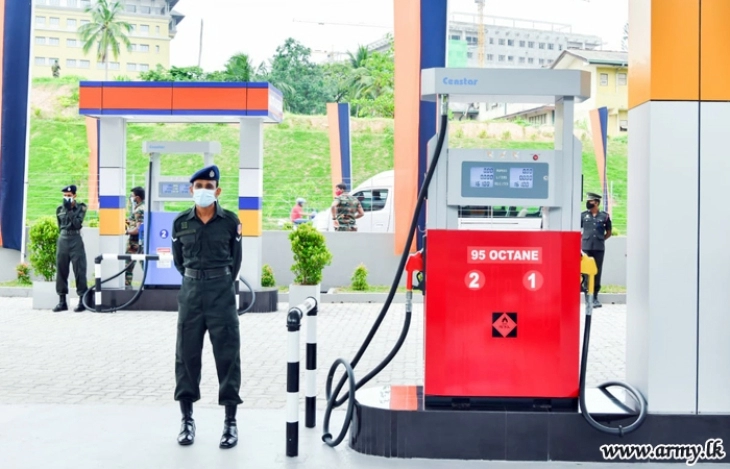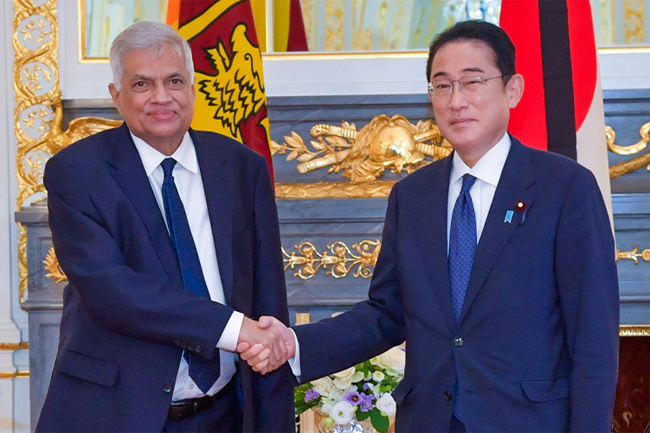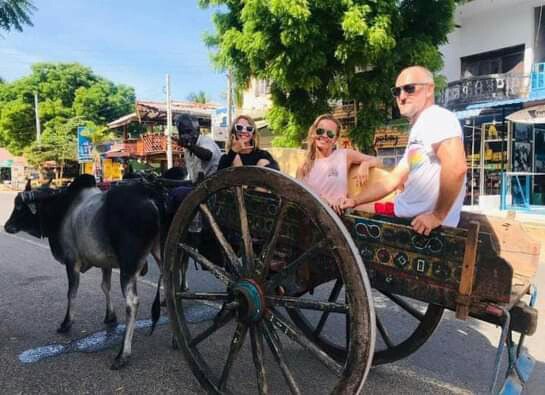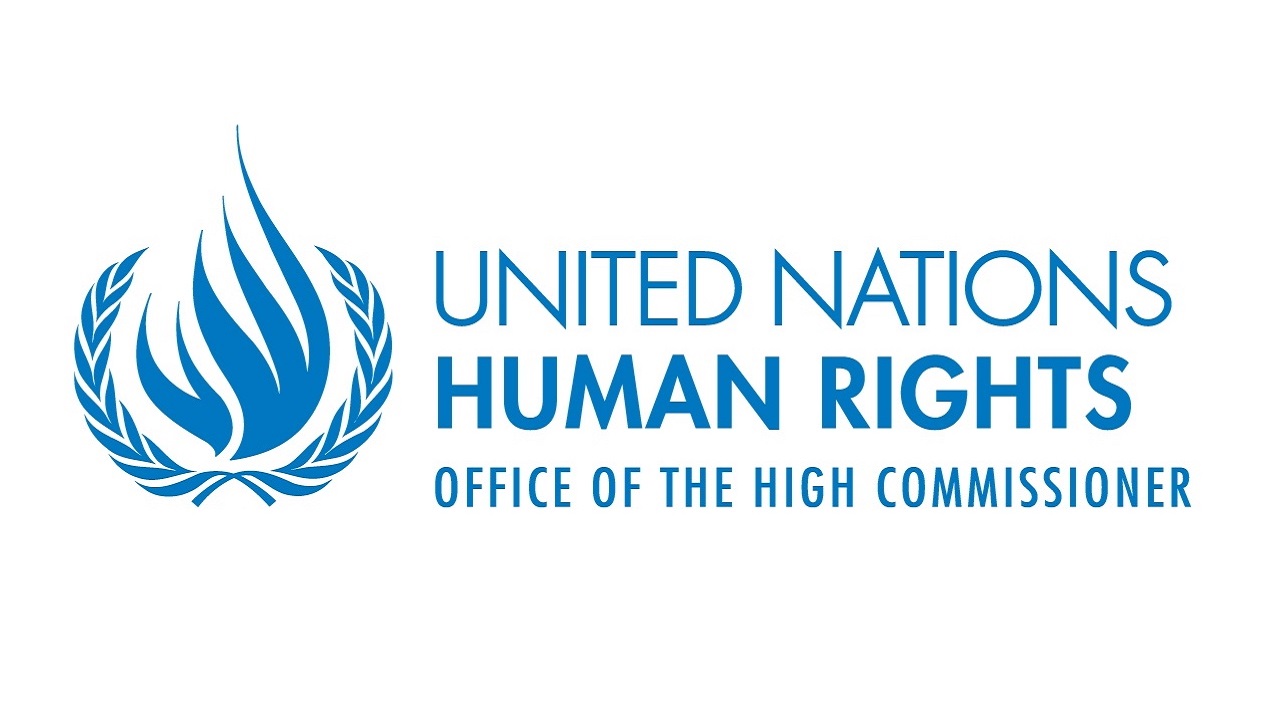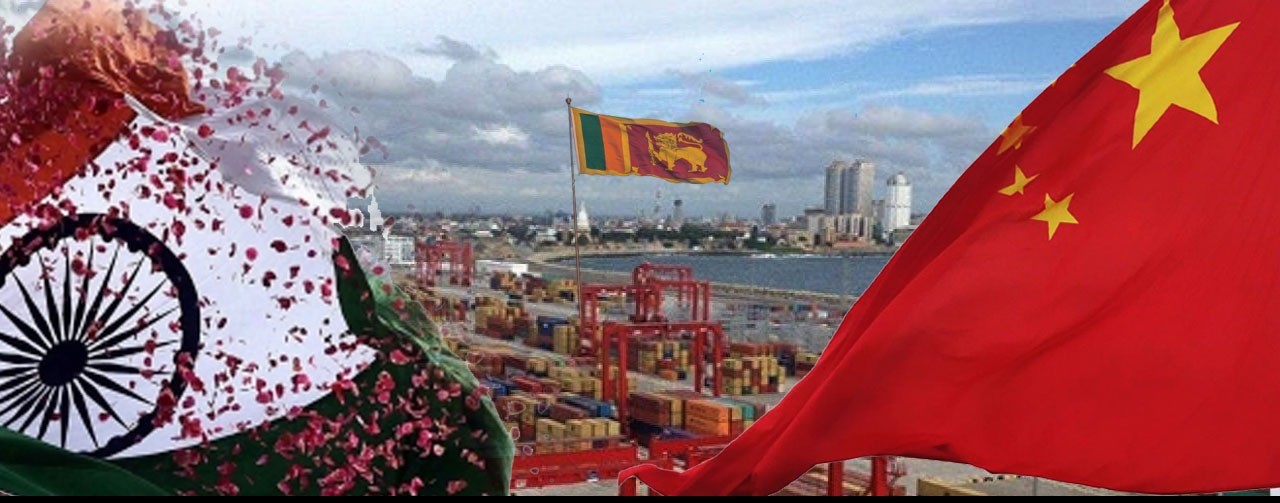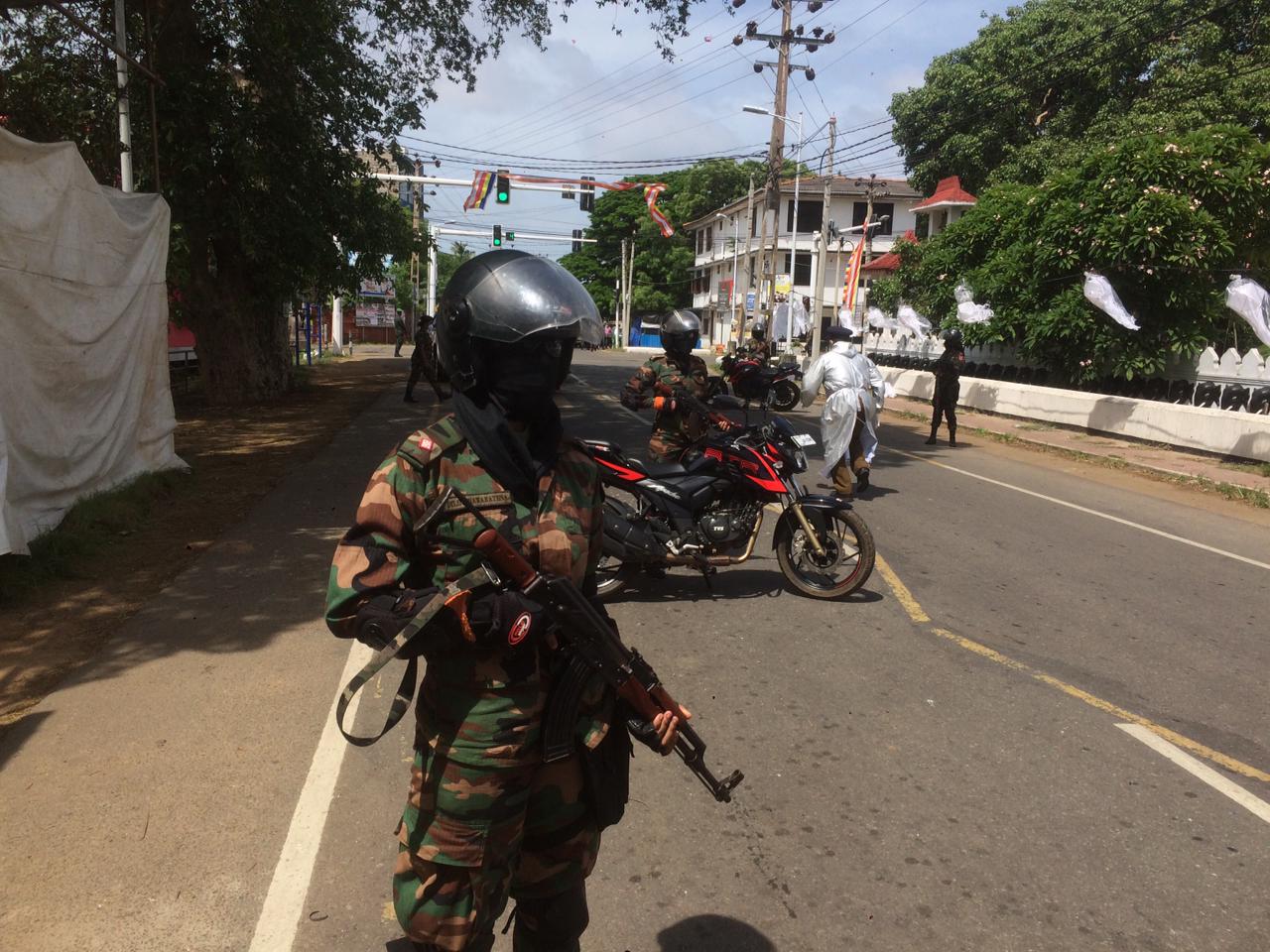Sri Lanka’s stance of advocating for a domestic truth-seeking mechanism earlier this month at the 51st Session of the UN Human Rights Council (UNHRC) to address long-standing allegations of rights violations and war crimes will do little to build international and local confidence in meaningful action, experts told The Sunday Morning.
Sri Lanka’s hurried submission to the international watchdog this year is bound to create confusion within the ranks of the international community whose assistance the bankrupt nation desperately needs, as the interim Government led by President Ranil Wickremesinghe is seen to backpedal on Resolution 30/1, which Sri Lanka co-sponsored at the 30th Session of the UNHRC in 2015, when Wickremesinghe was the then Prime Minister.
Sri Lanka’s stance at the UNHRC came in the backdrop of a Staff-Level Agreement between the Government and the International Monetary Fund (IMF), which, if approved, will provide a much needed $ 2.9 billion conditional assistance programme over a four-year period. The IMF agreement is viewed as a confidence-building mechanism, opening doors for Sri Lanka to enter a dialogue with its creditors to negotiate debt restructuring, and providing an opportunity to seek bridging finance needed for the nation of 22 million to recover from an unprecedented economic crisis.
Addressing the UNHRC session in the wake of a scathing report by the Office of the United Nations High Commissioner for Human Rights (OHCHR), which for the first time included concerns about economic crimes that may have contributed to the ongoing crisis, Sri Lankan Minister of Foreign Affairs Ali Sabry stated: “The Government will endeavour to establish a credible truth-seeking mechanism within the framework of the Constitution. The contours of such a model that would suit the particular conditions of Sri Lanka are under discussion.”
Minister Sabry, who is a former Minister of Justice in the Gotabaya Rajapaksa Government, argued that if reconciliation and human rights in Sri Lanka were to be meaningful and sustainable, they must be carried out in cooperation with the country, being compatible with the aspirations of its people, and in accordance with its constitutional framework.
“The international community is aware that unconstitutional and intrusive external initiatives have repeatedly failed to yield meaningful results on the ground and are in effect an unproductive drain on member state resources,” Sabry stressed.
The Foreign Minister called on the UNHRC to acknowledge “actual progress on the ground” and to assess the situation in a realistic manner.
“It is 13 years since the end of the conflict in Sri Lanka, and since then a new generation has emerged with their own aspirations. While issues of reconciliation and accountability are being comprehensively addressed through a domestic process, it is time to reflect realistically on the trajectory of this resolution which has continued on the agenda of the Council for over a decade and undertake a realistic assessment on whether it has benefited the people of Sri Lanka. There is a need to acknowledge actual progress on the ground and support Sri Lanka,” Sabry stated.
However, what such a domestic truth-seeking mechanism may look like remains unknown, with no guiding document nor dialogue from the Government on the matter made available to the public.
The Ministries of Justice and Foreign Affairs would not comment on the matter, with both Ministers overseas on official visits. Attempts by The Sunday Morning to contact Minister Sabry and Justice Minister Dr. Wijeyadasa Rajapakshe regarding how the Government plans to enact a domestic mechanism proved unsuccessful.
Delaying tactics weaken credibility?
When asked about the Government’s continued stance on a domestic mechanism, former Faculty Member at the University of Colombo Department of Political Science and Public Policy and Centre for Policy Research and Analysis Founder-Director Prof. Jayadeva Uyangoda told The Sunday Morning that the Government was aware that it lacked credibility in the eyes of the international community and political will locally to effect a meaningful truth-seeking mechanism, calling the stance expressed at the UNHRC sessions a delaying tactic and a diplomatic tool to secure support from other countries to face a vote at the sessions.
“People, locally and internationally, don’t trust the words of the Government. I think the Government also knows that by making these empty promises, it may be able to persuade some countries to vote in its favour at the UNHRC. If we are to take the Government’s stance on truth-seeking seriously, it should prepare the background within the country to accept it.
“In the past, there has been a lot of opposition to truth-seeking by the bureaucracy, Sinhala nationalists, and some segments of the military. The Sri Lanka Podujana Peramuna (SLPP) which is a partner of this Government has opposed it. This Government hasn’t done anything to initiate a new discussion about this mechanism locally before going to Geneva and making these promises. Therefore, there is very little credibility in what the Government is doing in Geneva [UNHRC sessions]. This is very unfortunate because a truth-seeking mechanism is one of the most important steps towards reconciliation and democratisation. However, every government has been misusing it,” Prof. Uyangoda observed.
According to Prof. Uyangoda, the Government’s annual representation at the UNHRC is a delaying tactic due to lack of political will to pursue meaningful reconciliation and justice mechanisms. He charged that the Government’s “annual pilgrimage to Geneva” uses lofty undertakings to pacify Western nations which pressure Sri Lanka on human rights issues.
“I think this time is no different. With the economic crisis, Sri Lanka will likely try to gain a little sympathy from the West as plan A, while rallying countries like Russia, China, and others to vote against any resolution, pointing out that if a precedent is set with Sri Lanka, they will be targeted next. That is plan B.”
Commenting on the progress on human rights since 2015, Prof. Uyangoda argued that the Yahapalanaya Government had not spoken on the issue with a unanimous voice and had faced much resistance. He stressed that over the years, Sri Lanka had been making excuses for the slow progress or lack thereof on truth-seeking, reconciliation, and peacebuilding, adding that each government used a “culture of commissions” to prolong the issue and avoid being decisive on human rights issues.
He also said that there were serious obstacles to a truth-seeking mechanism, since after the war, many bureaucrats, policymakers, and senior members of the armed forces with rights violations allegations against them remained in powerful positions, making it difficult to proceed with a meaningful mechanism.
Ranil’s backflip?
Sri Lanka risks losing what little credibility it has in the international arena with the Foreign Minister’s statement, a former diplomat who was attached to the Permanent Mission of Sri Lanka in Geneva told The Sunday Morning on condition of anonymity.
“The problem is that the Foreign Minister has now said that Sri Lanka is against the 2015 resolution which we as a country co-sponsored. But the current President, who was the then Prime Minister of the Yahapalanaya Government, is the man who wanted Sri Lanka to co-sponsor it. The incumbent President took this step, along with late Minister Managala Samaraweera, and Wijeyadasa Rajapakshe was also a part of it.
“Today, we see Ali Sabry, the former lawyer of the Rajapaksas, going to Geneva with Wijeyadasa Rajapakshe and saying otherwise. Having the same people who co-sponsored the resolution now backtrack creates confusion among the international community, especially the Core Group. It also raises the question of who is really in charge of Sri Lanka at the moment,” the diplomat said.
He pointed out that some of the people who would be most affected by Resolution 46/1 were those in the Rajapaksa family and several key officials in the defence establishment. “It is hard to contemplate why the Government is pushing this stance and doing so now at this stage, when we need international assistance. If this is the Government’s stance, has Wickremesinghe abandoned his vision for reconciliation? Has he been reborn?” the former diplomat questioned, adding that such mixed messaging to the international community would not contribute to clarity and would make Sri Lanka look unreliable.
Following Resolution 30/1 in 2015, a number of political groups and political commentators pushed the narrative that ‘foreign participation’ in truth-seeking mechanisms would amount to foreign judges sitting in judgement over Sri Lankans accused of war crimes and rights violations. The narrative led to erosion of support among the public for any international involvement in a truth-seeking or justice process.
However, according to former Yahapalanaya Minister Dr. Harsha de Silva, the ‘foreign participation’ mentioned in 30/1 was not envisaged as what was spun through such narratives.
“At no time was the co-sponsored Resolution 30/1 a ‘hybrid system’. What was there was ‘with the participation’ of foreign judges or prosecutors. I recall very well discussing this with late Minister Mangala Samaraweera. His view was that ‘participation’ was a broad term. Certain people, for their political interest, claimed that it would have foreign judges sitting in judgement, but there was no such thing. It was an extreme take on the word ‘participation’.
“On the other hand, you have ‘observers’. There have been occasions, some during when Mahinda Rajapaksa was Prime Minister, where there were observers. Furthermore, in the resolution, it clearly states that any mechanism would be done within the constitutional framework of Sri Lanka. There are no provisions for foreign judges to deliver judgements within the Constitution of Sri Lanka. So, these narratives were a complete manipulation of a word. In defence of Mangala I must say this. Of course, Ranil Wickremesinghe sanctioned this. And he [Wickremesinghe] must be truthful to what he advocated at the time,” de Silva told The Sunday Morning.
Lack of credibility
Bhavani Fonseka, a lawyer and rights activist with the Centre for Policy Alternatives (CPA) told The Sunday Morning that the Yahapalanaya Government in 2016 had appointed a Consultation Task Force which, following a countrywide survey, reported that there was a desire from the public for some international involvement in a truth-seeking mechanism due to a trust deficit in local institutions.
“They appointed a Consultation Task Force in 2016, which went around the country, and one of their key findings was that people wanted a hybrid mechanism because they didn’t trust the domestic system. They felt there were failures in the domestic system and that foreign judges needed to be involved in the process,” Fonseka said, adding that it had been a recommendation made when Ranil Wickremesinghe was Prime Minister.
Fonseka questioned why the present Government, with Wickremesinghe at the head, was taking a contradictory stance. “It doesn’t build confidence within Sri Lanka or internationally. The Government is now sending a different signal. I think if they are very clear in their message and communicate in one voice, the international community will listen. But this doesn’t seem to be happening.”
No confidence in domestic mechanism
Speaking to The Sunday Morning, Global Tamil Forum (GTF) Spokesman Suren Surendiran stated that given the Government’s actions regarding truth-seeking and reconciliation over the last decade, they did not have confidence in a domestic mechanism to deliver justice for the victims of alleged war crimes.
“Going by the track record over the last 13 years since the end of the armed conflict, I am not very confident at all! Successive governments have promised domestic mechanisms and made various commitments to victims, locals, bilateral partners like India, as well as the international community at the UN which have not been fulfilled at all, but intended to fool all concerned. Sri Lanka has backtracked publicly from some of these commitments. For example, it withdrew from co-sponsorships of resolutions at the UNHRC.
“Also, the truth-seeking mechanism is only one of the four transitional justice pillars. Although it is an important initiative, on its own it will not resolve or be accepted as part of serving justice to victims. Addressing accountability through a credible international mechanism needs to be part of the programme. That’s what the 2015 UNHRC Resolution 30/1 was aiming to address.
“However, successive governments kept deferring or intentionally avoiding addressing this. Hence, the Resolution 46/1 of 2021 went with the recommendations of the High Commissioner to address accountability via collecting and preserving evidence and serving justice through other international mechanisms, including universal jurisdiction. We know how successive governments have pathetically tried to hoodwink the international community with a half-baked Office on Missing Persons (OMP) and other reparation ideas.
“Until Sri Lanka acknowledges that international laws were breached during the war, especially towards the end of the war, and charges persons who had command responsibility, including the then political, civil, and defence service leaders, the international community will not let it go. This is not just to punish for alleged crimes committed but also to ensure that there won’t be any such breaches of international law elsewhere in the world, in the future.
“Instead of punishing war criminals, in Sri Lanka, they are regarded as war heroes, and are promoted or given high posts in State institutions. On rare occasions where courts convict these criminals, they are evidently pardoned by successive presidents. Against this backdrop, who will and why should anyone have any confidence or faith that any such local mechanisms will address accountability or serve justice to victims?” Surendiran questioned.
Source: The Sunday Morning


